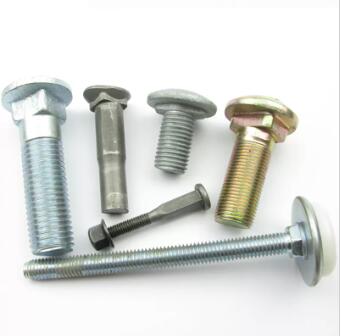Building Excellence: Exploring the Advantages of High-Strength Bolts
2023-11-20
Introduction
In the world of construction and engineering, the choice of fasteners can significantly impact the structural integrity and reliability of a project. High-strength bolts, engineered to withstand demanding forces and conditions, have become indispensable in various applications. In this blog post, we'll uncover the advantages that come with using high-strength bolts, shedding light on why these fasteners are the preferred choice in critical construction scenarios.
1. Superior Tensile Strength: A Foundation of Stability
The primary advantage of high-strength bolts lies in their superior tensile strength. These bolts are crafted from alloy steels, often with specific additives like chromium, molybdenum, or vanadium. This results in bolts capable of withstanding significantly higher tensile loads compared to standard bolts. The enhanced tensile strength provides a solid foundation for structures that demand resilience against dynamic forces, making high-strength bolts the go-to choice in critical applications.
2. Enhanced Load-Carrying Capacity: Building for the Future
High-strength bolts are engineered to carry heavier loads, making them essential in the construction of large structures such as bridges, high-rise buildings, and industrial facilities. The ability to support increased loads allows engineers to design structures that can accommodate larger spans and heavier equipment, contributing to the efficiency and longevity of the built environment.
3. Improved Fatigue Resistance: Endurance in Action
In applications subject to cyclic loading or vibrations, such as bridges and machinery, fatigue resistance becomes a critical factor. High-strength bolts exhibit improved fatigue resistance compared to standard bolts, ensuring that they can endure repeated stress cycles without compromising their structural integrity. This characteristic is especially valuable in scenarios where the longevity of the structure is paramount.
4. Reduced Bolt Sizes and Weight: Efficiency in Design
One of the notable advantages of high-strength bolts is their ability to carry the same load as larger standard bolts. This allows for more streamlined and efficient designs, as engineers can use smaller and lighter high-strength bolts without sacrificing strength. The reduced size and weight contribute to easier handling, transportation, and installation, streamlining the construction process.
5. Precision Installation: Tightening with Confidence
High-strength bolts often require precise installation methods involving controlled torque and tension. This not only ensures that the bolts are securely fastened but also contributes to the overall stability of the structure. The need for precision in installation aligns with the meticulous planning and execution required in critical construction projects, emphasizing the importance of proper engineering practices.
6. Corrosion Resistance: Longevity in Challenging Environments
Many high-strength bolts are made from corrosion-resistant materials, further enhancing their longevity, especially in harsh environmental conditions. This corrosion resistance is particularly valuable in marine, coastal, or industrial settings where exposure to moisture and corrosive elements is a constant challenge.
7. Compliance with Industry Standards: Meeting Stringent Requirements
High-strength bolts are often manufactured to meet specific industry standards and certifications. This ensures that they adhere to rigorous quality control measures and are designed to perform reliably in accordance with the demands of various applications. Compliance with standards provides confidence to engineers, builders, and regulatory bodies, assuring them of the bolts' quality and reliability.
Conclusion
High-strength bolts represent a pinnacle in fastener technology, offering a range of advantages that elevate them to a crucial role in modern construction and engineering. From superior tensile strength to enhanced load-carrying capacity and improved fatigue resistance, these bolts contribute to the stability, efficiency, and longevity of structures. As the demand for larger, more resilient, and efficient constructions continues to grow, the advantages of high-strength bolts make them an indispensable choice in the toolkit of builders and engineers striving for excellence in their projects.



